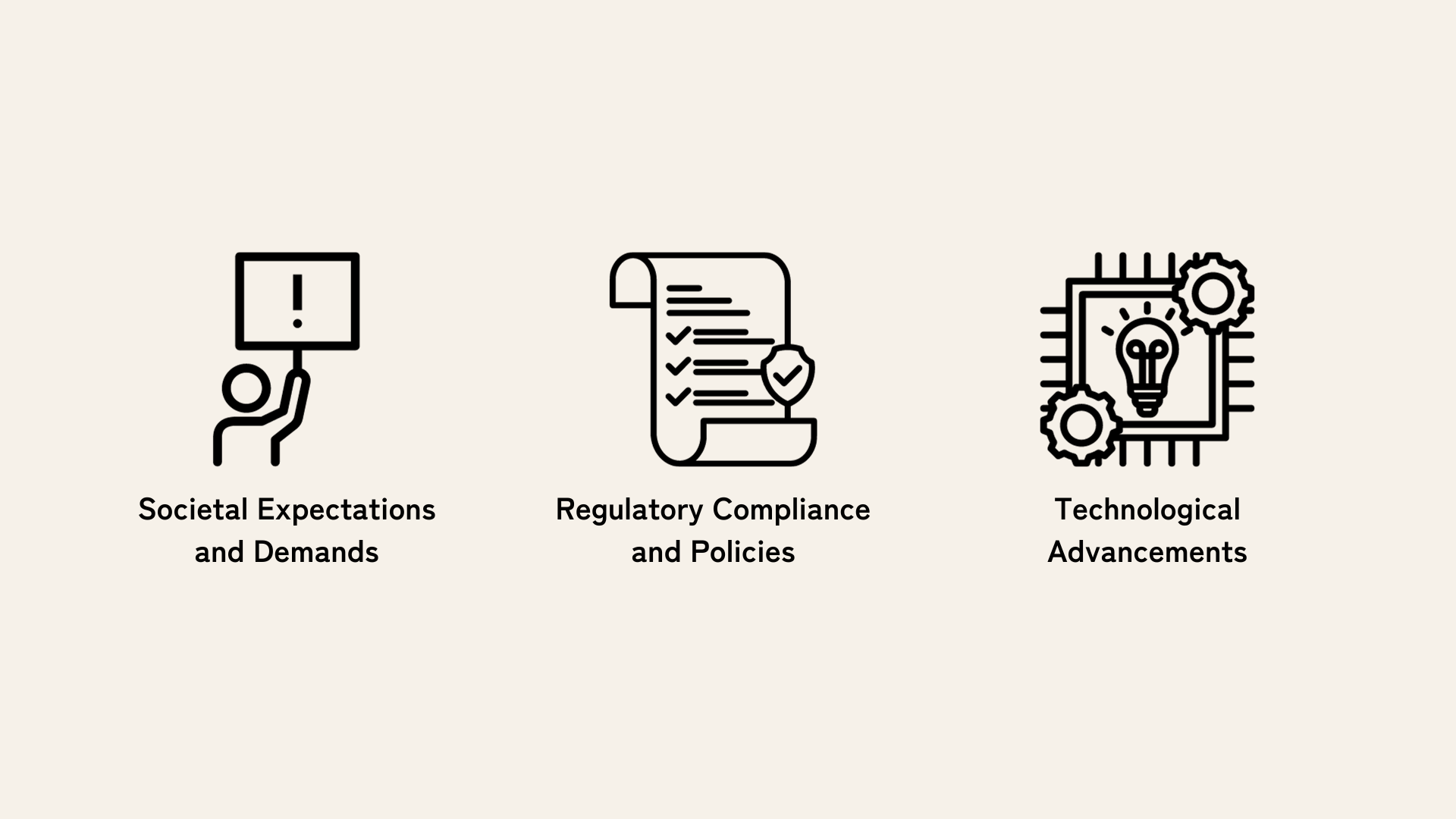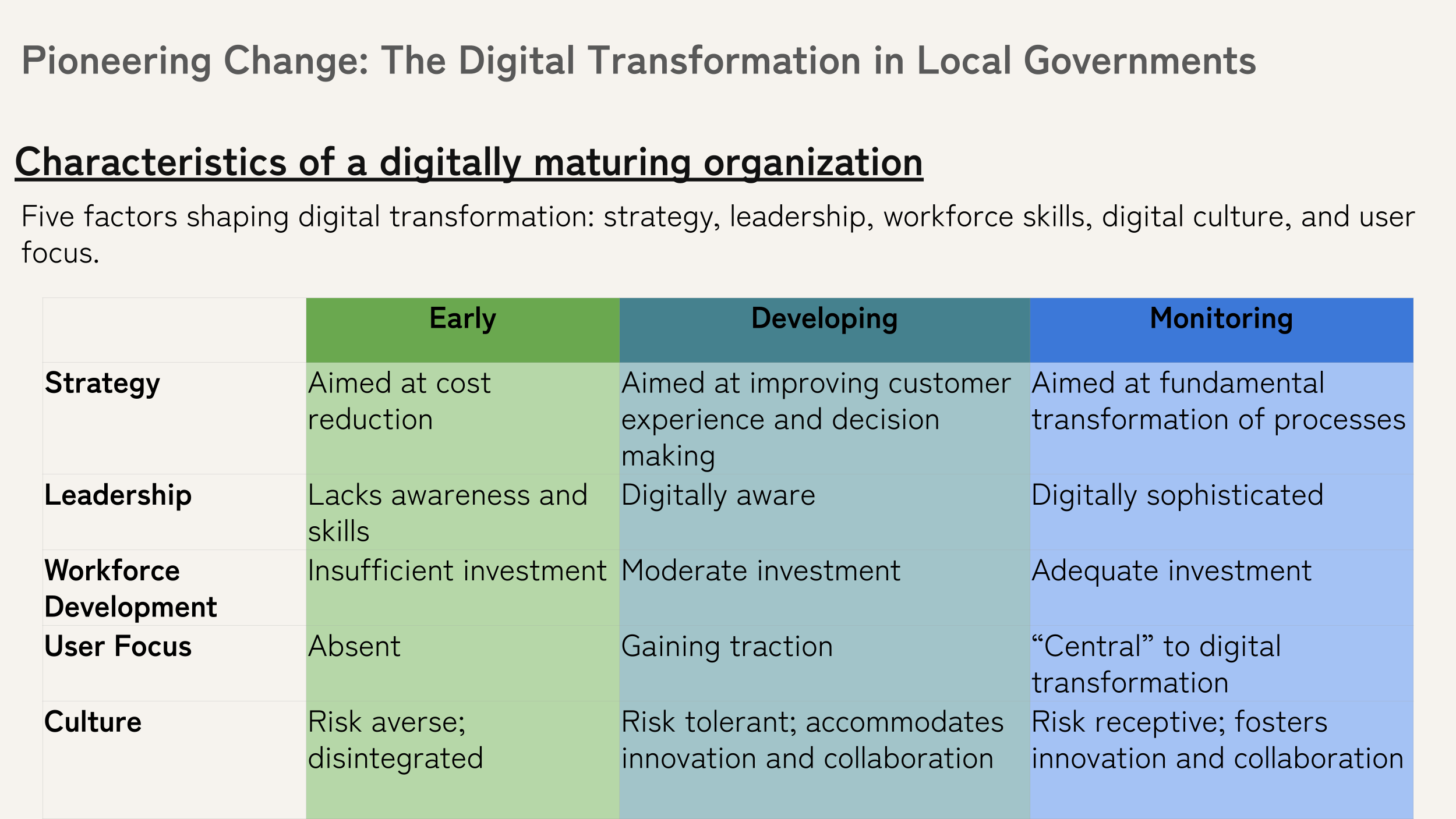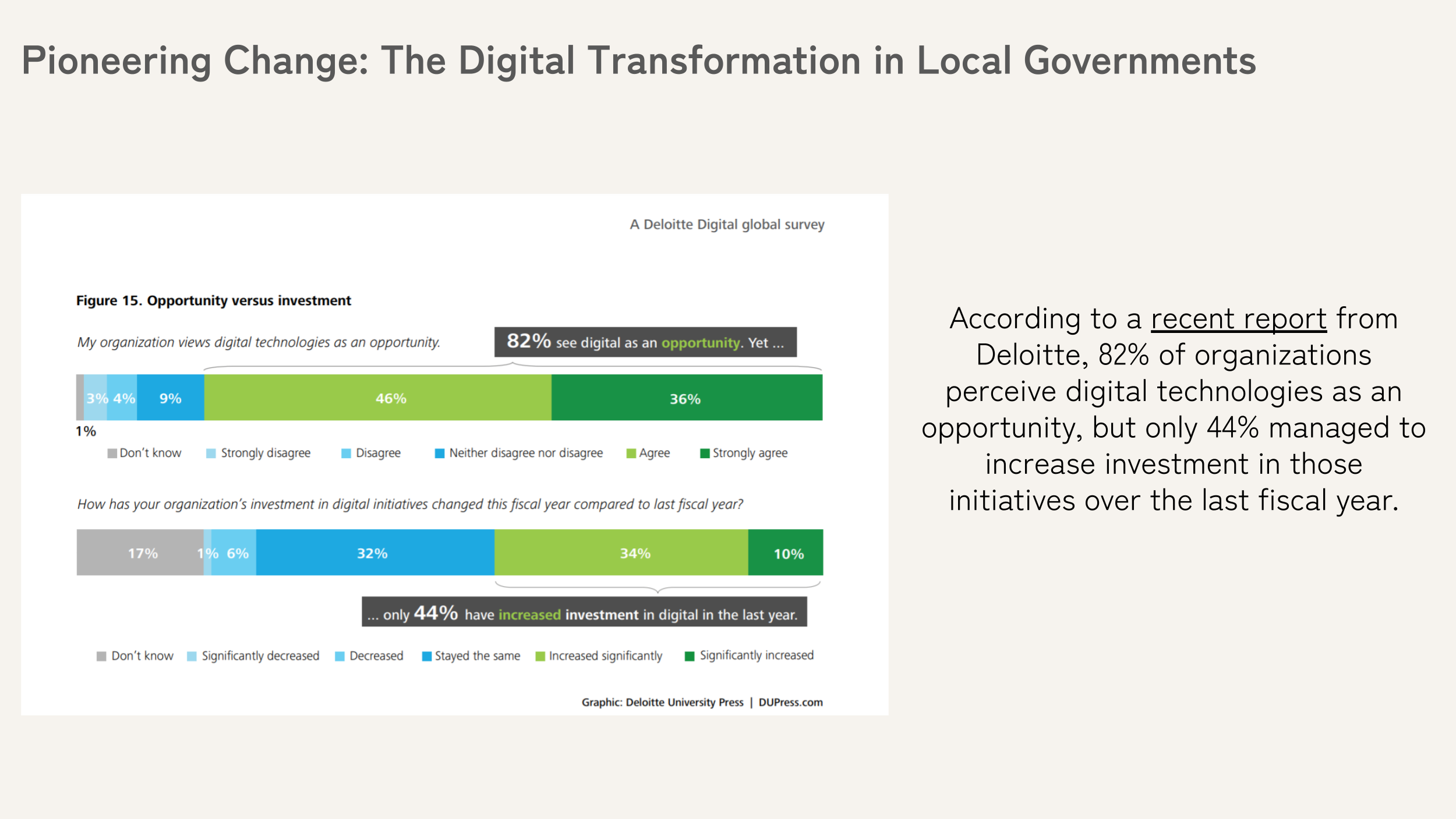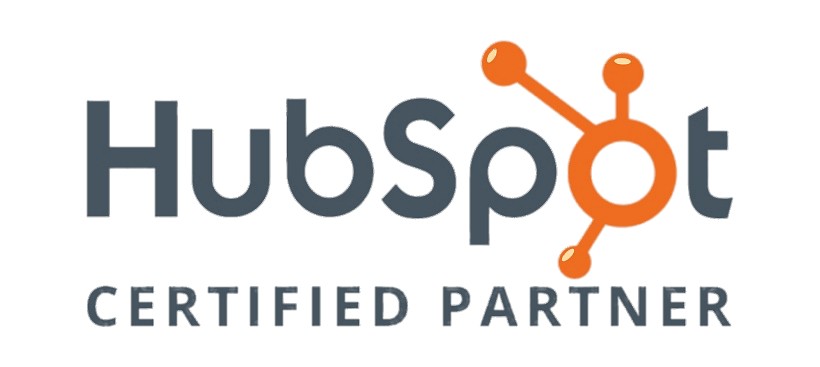Introduction
The growing digital revolution is continuously transforming the way that organizations operate and deliver value to customers.
Today, these government entities are at an exciting crossroads, tasked with the crucial responsibility of revolutionizing traditional public service delivery.
The challenge stems from not just adopting innovative technology, but instilling a cultural shift to make way for the modern digital age.
This transformation is no simple feat, but the potential rewards for our cities and their citizens are vast.
Indeed, transforming digitally could signify creating more connected, efficient, and citizen-friendly cities.
Here, we detail the essence of digital transformation in local governments, why it matters, its key drivers, challenges, and provide some successful examples that illuminate the enabling power of digital advancements.
What is Digital Transformation in Local Government?
Digital transformation in local government involves fundamentally reimagining and altering the traditional method of public service delivery.
This transformative process encompasses implementing the latest digital technologies, methodologies, and approaches across all governmental functions with a primary aim of increasing operational efficiency and improving public service.
The process begins by identifying areas in local government operations that can benefit from digitalization.
From there, authorities invest in innovative digital solutions — such as artificial intelligence, cloud computing, and data analytics tools — to revamp these areas, leading to streamlined and more effective services.
A vital part of digital transformation is citizen engagement. Governments must ensure their digital services are user-friendly and accessible, making public service delivery more effective and convenient for citizens.
Moreover, local governments should nurture a digital culture within their organizations.
This includes training employees on digital literacy, promoting digital tools, and embracing agile methodologies in their working process, which enhances adaptability.
In essence, digital transformation in local governments is about incorporating digital technologies and mindsets into their core functions to deliver better public service and, ultimately, create a smarter and more connected digital city.
Why Does Digital Transformation Matter?
#1 Operational Efficiency
One of the immediate benefits of digital transformation is increased operational efficiency.
Streamlining processes using digital tools can lead to improved resource management, saving time and costs.
For example, a local government can use integrated digital systems to automate and accelerate various administrative tasks, such as council rate notices and tax collections.
#2 Enhancing Citizen Engagement
Digital advancements offer new and improved pathways for interacting with citizens.
Social media channels, mobile apps, and governmental portals allow local governments to communicate more effectively.
Also, digital tools facilitate a two-way relationship, allowing citizens to engage, provide feedback, and access services conveniently.
#3 Access to Real-Time Data and Analytics
By leveraging digital technologies, local governments can procure vast amounts of data and employ analytics for decision-making.
This allows governments to make data-driven policy decisions and enhance various aspects, like traffic and waste management, urban development, and crime prevention, amongst others.
#4 Improved Service Delivery
By making services available online, local governments can provide round-the-clock services that are accessible from anywhere, leading to improved satisfaction levels among citizens.
Key Drivers of Digital Transformation in Local Government

Societal Expectations and Demands
Ever-evolving citizen demand is one of the significant drivers of digital transformation in local governments.
People's experiences with private sector entities like banking or retail have shaped their expectations from public services too.
They now demand the same level of personalization, ease, and convenience when engaging with local councils or municipal bodies.
Regulatory Compliance and Policies
Various policy directives and regulatory requirements are pushing local councils towards a more digital course.
Mandates for transparency, accountability, and efficiency often require digital capabilities to achieve them effectively.
Technological Advancements
The rise of disruptive technologies like AI, IoT, and blockchain provides immense opportunities for transforming local government operations, making them more agile, informed, and efficient.
Digital Transformation Trends in Local Government
In the race towards digitalization, local governments are major players. As citizens come to expect their interactions with public authorities to match the convenience of their everyday digital experiences, local governments must rise to the challenge.
Innovations are rapidly altering the digital landscape of local governance, leading to a multitude of transformative trends.
Here, we spotlight the major digital transformation trends redefining local governance.
1. Cloud Migration
Local authorities are migrating their services to the cloud in pursuit of flexibility, scalability, and cost-effectiveness.
Cloud-based services streamline operations, improve data management and accessibility, and cut costs significantly.
By moving processes to the cloud, local governments can provide data-intensive services more efficiently, from urban planning to emergency services response.
2. Data Analytics & Big Data
With an increased emphasis on evidence-based decision-making in governance, local authorities are tapping into the potential of data analytics.
By collating and analyzing vast volumes of data, governments can derive critical insights into citizen behavior, traffic and mobility patterns, urban planning, and more.
Big data can provide unprecedented opportunities for predictive analytics, which can significantly enhance services like waste management, crime prevention, and public health planning.
3. Artificial Intelligence
AI is becoming an integral part of digital government services. Intelligent chatbots can handle customer queries, reducing response times and improving citizen experience.
AI can also boost process efficiency by automating routine tasks, freeing up staff for more nuanced work.
For instance, AI has been employed by local governments for purposes like traffic management and curating personalized citizen experiences.
4. Internet of Things (IoT)
IoT is changing how local governments operate, providing real-time connectivity between various services and processes.
Implementation of IoT in local infrastructure can lead to what is referred to as "Smart Cities".
Connected devices can monitor and analyze a wide array of urban parameters, from air quality to traffic congestion, enabling proactive responses.
5. Mobile Government
Mobile devices have become pervasive, and consequently, local governments are adopting mobile-friendly services.
"Mobile Government" allows citizens to access information and services from anywhere, at any time, using their mobile devices.
From making payments and renewing licenses to reporting issues and accessing public information, enabling services through mobile applications drives citizen engagement in governance.
6. Blockchain Technology
Although still in its relative infancy, blockchain technology holds immense potential for local government administration.
The transparent and secure nature of blockchain can offer solutions for identity verification, voting systems, public records administration, and more.
It could help eliminate fraudulent activities, streamline administrative processes, and enhance cybersecurity.
7. Cybersecurity
As the reliance on digital technologies increases, so does the need for robust cybersecurity measures.
Governments hold vast amounts of personal data, making them prime targets for cyber attacks.
Therefore, strengthening cybersecurity frameworks is a crucial trend in local government digital transformation.
The focus isn't solely on implementing latest security technologies but also integrating cyber risk awareness into the organizational culture.
8. Digital Divide
While digitalization offers many benefits, it may also risk exacerbating existing social divisions. Thus, tackling the digital divide is a growing trend among local governments.
Accessibility, digital literacy, and affordability are primary concerns here. Policymakers are crafting strategies to ensure equitable digital access and inclusion, promoting digital literacy and broadband connectivity.
9. Citizen Experience Design
Building services around citizen needs is a growing impetus in local government digital transformation.
Local governments are adopting a human-centered design approach, ensuring public services are not only user-friendly but also user-centric.
By incorporating user feedback into service design, they can better align services with the needs of citizens.
Tips to Achieve Digital Transformation in Local Government
Digital technologies hold the power to drastically redefine service delivery and operational efficiency within public sectors.
However, digital transformations can bring significant challenges. Governments must navigate delicate balances, pushing for innovation while maintaining a focus on public service.
These are some crucial tips to achieve successful digital transformation in government.
1. Clear Vision & Strategy
The journey towards digital transformation should commence with a clear vision and a robust strategy.
Local governments should identify their digital goals, tying them to concrete outcomes that impact public service delivery.
This strategy should touch all aspects of the government's work — from citizen engagement and service delivery to infrastructure and human capital.
2. Leadership Commitment
Digital transformation requires a determined drive from the top. Senior leadership should not only endorse but actively drive the agenda for digitalization.
Their commitment is crucial in mobilizing resources, securing budgetary allowances and driving cultural change.
3. Embrace Agile Methodologies
Local governments need to replace traditional waterfall development processes with iterative Agile methodologies.
Agile can foster a culture of continuous evaluation and development, facilitating a swift response to citizen feedback and market demands.
It enables organizations to quickly learn, test, and deploy digital solutions.
4. Citizen-Centric Approach
Digital transformations should always center around the citizen. Governments should prioritize a strong user focus, channeling efforts to understand and improve the citizen experience.
Regular consultation with citizens and user testing are valuable tools for centering the citizen's needs throughout the digital transformation process.
5. Investing in Digital Skills
Digital transformation requires a competent workforce with a strong understanding of digital technologies.
Governments should invest in training, education, and hiring digitally skilled employees, fostering a flexible workforce that can react to technological advancements and innovative solutions.
6. Partnerships and Collaboration
Local governments should actively seek partnerships, both within their administrative boundaries and outside.
Working collaboratively with other governmental bodies or private sector entities can share insights, best practices, and resources.
These partnerships can hasten progress and enhance the value derived from digital transformation initiatives.
7. Cybersecurity
Maintaining robust cybersecurity measures is paramount during digitalization. Governments must ensure data integrity and privacy for citizens, maintaining trust and confidence in their digital services.
It's necessary to implement cybersecurity best practices, from encryption and multi-factor authentication to rigorous testing and staff training on cyber threats.
8. Overcoming Legacy System Challenges
Outdated legacy systems are a common obstacle to digital transformations. Local governments should facilitate modernization of these legacy systems that enables a suitable environment for the adoption of digital processes.
This might involve migrating to the cloud, integrating systems, or even completely replacing outdated IT infrastructure.
9. Utilization of Data Analytics
Data is a valuable resource. Collecting, analyzing, and interpreting data can aid in decision-making, providing evidence-driven insights that can help local governments provide better services.
Data analytics tools can be applied to almost any aspect of governance, from waste management to traffic congestion and citizen engagement.
10. Enabling Accessibility
Ensuring digital inclusion is vital. Alongside their digital transformations, local governments should actively work to mitigate the digital divide, ensuring all citizens can access digital services.
This might involve offering digital literacy courses, ensuring accessibility for persons with disabilities, or working to provide access to digital resources for economically disadvantaged citizens.
11. Experimentation and Innovation
Local governments should create a safe space for experimentation and innovation. Not all digital initiatives will succeed immediately, and governments should be prepared for some degree of failure.
This environment of learning from errors drives innovation and helps in identifying effective solutions.
12. Change Management
Change is at the heart of digital transformation. However, both employees and citizens can resist change due to discomfort or fear.
For the transformation to be successful, governments need an effective change management plan to guide staff and citizens through this transition process, addressing their concerns and encouraging adoption of the new digital systems.

Challenges in Local Government Digital Transformation
Legacy Systems
Tackling outdated IT systems and infrastructures is one of the most significant challenges.
Legacy systems lack the flexibility and robustness required to support digital tools, making the transition towards digitization a daunting task.
Data Privacy and Security
Data breaches and cyber threats are real concerns in the digital age, and local government entities are not immune.
Given the sensitive nature of data handled by local governments, maintaining strong data privacy and security protocols is of paramount importance.
Resource Constraints
Government bodies often operate under tight budgetary constraints, making significant technological investments challenging.
Cultural and Organizational Resistance
People, being creatures of habit, often present formidable resistance to change.
Convincing employees to abandon existing work procedures, and citizens to adopt new ways of accessing services, can be a substantial obstacle.

The Success Story of Denmark
While it's challenging for local governments to digitally transform their operations, some success stories stand out on the global map. One of these is Denmark.
Ranked the top digital country in the EU according to the Digital Economy and Society Index (DESI) 2020, Denmark offers exemplary insights on enabling digitalization in public service delivery.
Denmark’s Digital Strategy
Denmark's digital transformation is the fruition of a well-articulated, ambitious strategy, predominantly aiming to deliver efficient and user-friendly digital public services.
The shared national digital strategy established between 2011 and 2015 initiated transformative goals that continue to guide Denmark's digital development.
Mandatory Digital Post in Public Services
One of the critical milestones achieved by the Danish government is the establishment of a 'Digital Post' system.
This significant move towards digital communication garnered active participation, with 91% of the Danish population using digital post in 2019.
NemID and NemLog-In3
The Danish government has seamlessly integrated citizen identification with their digital services.
'NemID', an online authentication solution, allows citizens to securely access public and private sector online services.
In 2021, NemID was replaced by MitID as part of the national authentication strategy, offering user-friendly and secure identification.
borger.dk - A One-Stop Portal
The borger.dk portal provides a single platform for citizens to access public services. From health services and benefits information to permits and applications, the portal offers a diverse range of services.
As of 2019, 86% of citizens use the portal, making it a cornerstone of the Danish digital service landscape.
Strengthening Cybersecurity
Denmark has taken stringent measures to secure digital platforms. The establishment of the Centre for Cyber Security testifies to this commitment.
It operates around the clock, offering advice, monitoring of threats, and response services to safeguard government institutions.
Digitalization and Economy
Denmark's digital efforts have made substantial impacts on their economy. According to a research by McKinsey Global Institute estimates that by 2030 the potential impact of AI could be up to around DKK 35 billion annually (1.6 percentage points in additional annual GDP growth) if Denmark adopts AI at scale.
Upgrade your local government operations with Sanka, the all-in-one digital transformation solution tailored for your needs.
By streamlining tasks across your departments, including managing customers, projects, invoices, orders, and more, Sanka optimizes efficiency, reduces costs, and enhances transparency.
Equip your entire team with real-time data analytics, secure data storage, and seamless collaboration tools to offer outstanding citizen services.
Take the first step towards improved local governance by visiting Sanka and request a free demo today. Elevate your local government operations with Sanka, the future of digital transformation!
Conclusion
Truly, the digital transformation journey of local governments is crucial yet complex, filled with potential benefits and challenges.
However, given the immense opportunities it offers in improving operational efficiency, citizen engagement, and service delivery, the digital road proves indispensable, albeit challenging.
Through the journey of digital transformation, local governments can streamline their service delivery and engage with citizens in novel and more meaningful ways.
Councils must thus play a proactive role in embracing digital changes, whether it's leveraging new technological advancements, updating legacy systems, or protecting against potential cyber threats.
The pursuit of digital excellence is not an optional journey for local governments anymore; it is an essential path forward.








